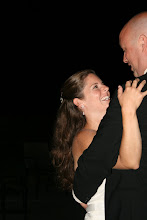Notes on Convergence Culture reading:
-Media Convergence
-Collective intelligence
-I had no idea Survivor had such an intense following. I am intrigued by this group of people.
-P. 54: Collective intelligence- it's not about possessing the information and knowledge, but more about HOW they got the information. PROCESS!
-Fantasy of empowerment
-powerful consumers
As I sit down to write I find myself keep going back to this one particular part of Jenkins' book. He states that what keeps a collective intelligence together is not just owning the knowledge and information but the process of obtaining it. This idea of process resonates with me because this is part of the challenge when teaching information literacy. I had a student come to the library this week looking for information on World War II. Obviously this is a very broad topic. I asked him some more specific questions about this topic hoping to find out where he was headed. I explained to him that we have various resources on World War II and we should use the catalog to find where they are located. Side note: Most of the students I work with have not ever used an OPAC before. As soon as I mentioned that I was going to show him how to find the WWII resources he was not interested in having me help him. "No, no, that's OK. I'll just go look on the shelves". I tried to explain to him how much time it would save him to learn where to find the information instead of blindly searching the shelves. I realized that he didn't really want my help, he just wanted me to show him where the books were that he could use. He wasn't interested in seeing what our collection had to offer on WWII, he just wanted me to hand him a book and say "here, this is about WWII, use this". I wanted to teach him HOW to find information and he just wanted to acquire the information. At times, the students I work with are not interested in the process of obtaining information. They would rather use Wikipedia as their primary resource because it's fast and easy to find information they are looking for.
I am working on developing a unit on the process of information acquisition. Ideally I would start this unit as early as possible in their educational careers. However, my main concern right now are the high school students who are moving on to college in the next few years. I feel that I can further develop their information seeking strategies so that their information literacy skills will be strong when entering the world of higher education.
Subscribe to:
Post Comments (Atom)

Your unit sounds like a great idea for a final project. Perhaps you would be interested in pitching it to the group and seeing if anyone would join your effort?
ReplyDeleteThe unit sounds really interesting, and I'd definitely be interested in discussing it with you in person.
ReplyDeleteI'm feeling you on the student interaction story!
I remember being the kid who just wanted the quick answer to a math problem from my dad, who always insisted that I be patient and try to understand each of the (tedius!) steps it took to solve the problem myself. I also remember (from, you know, last week) the feeling of wishing a student could just slow down for a minute and recognize the value of knowing how to conduct an effective search rather than have me find a quick, tidy answer for him. It's comforting in a way to know that even the most impatient/uninterested students are likely to eventually learn the skills they need, when they're ready.
I like the thought of planning lessons that make them ready sooner. :)